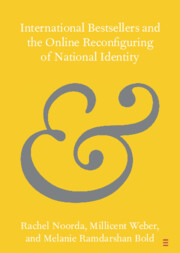Element contents
International Bestsellers and the Online Reconfiguring of National Identity
Published online by Cambridge University Press: 03 May 2024
Summary
- Type
- Element
- Information
- Online ISBN: 9781009104388Publisher: Cambridge University PressPrint publication: 23 May 2024
Bibliography
- 2
- Cited by

